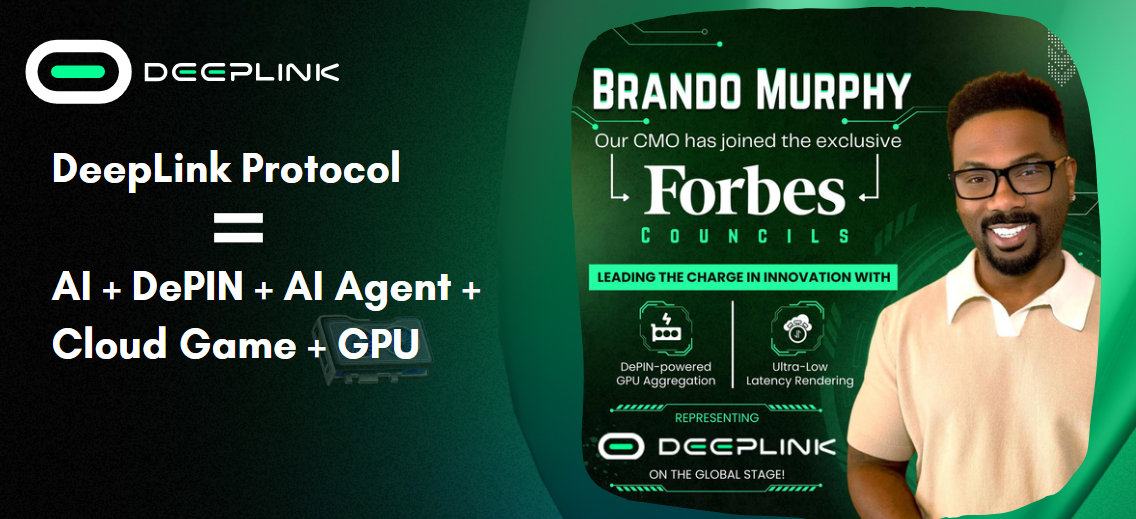DeepLink CMO, Brando Murphy Joins Forbes Councils. A Major Milestone for DeepLink Protocol

DeepLink Protocol is proud to announce that its Chief Marketing Officer, Brando Murphy, has officially become a member of Forbes Councils, a prestigious invitation-only community that brings together influential leaders, innovators, and visionaries from across the globe. This significant accomplishment not only underscores Brando professional achievements but also amplifies DeepLink presence on a global stage.
Strengthening DeepLink Mission Through Forbes Councils
Forbes Councils is renowned for fostering collaboration among business leaders, providing a platform for exchanging knowledge, and driving meaningful conversations about the future of industries. Brando Murphy entry into this elite circle aligns perfectly with DeepLink Protocol mission to revolutionize cloud gaming through decentralized technology, AI, and blockchain.
With this membership, Brando will have access to an extensive network of like-minded professionals, exclusive events, and thought leadership opportunities. These resources will allow him to represent DeepLink Protocol in discussions that shape the future of technology, gaming, and blockchain industries.
Elevating DeepLink Protocol Global Impact
As a leading voice for DeepLink Protocol, Brando will use this platform to share the company groundbreaking advancements, including its decentralized architecture, AI-powered gaming experiences, and ultra-low latency rendering technology. His active participation in Forbes Councils will ensure that DeepLink Protocol innovative solutions reach a wider audience, inspiring collaboration and adoption across various sectors.
DeepLink is already recognized for leveraging blockchain to create a transparent and secure cloud gaming ecosystem while utilizing DePIN to aggregate idle GPUs and computing resources globally. Brando membership in Forbes Councils enhances the company’s ability to showcase these innovations to a broader community of leaders and decision-makers.
A Step Toward a More Connected Future
This achievement is not just a reflection of Brando Murphy’s outstanding leadership but also a testament to DeepLink Protocol commitment to pushing the boundaries of what’s possible in decentralized gaming. With Brando at the helm of this initiative, DeepLink Protocol is poised to engage with thought leaders and industry pioneers, forging partnerships and driving forward its mission of creating a more accessible, high-performance gaming world.
Brando Murphy inclusion in Forbes Councils is a transformative milestone for both him and DeepLink Protocol. It symbolizes a deeper commitment to innovation, collaboration, and leadership in the decentralized gaming ecosystem. This opportunity will enable DeepLink to continue its journey as a trailblazer in blockchain-based cloud gaming while solidifying its position as a thought leader in the global technology landscape.
Stay tuned as we embark on this exciting new chapter, with Brando Murphy proudly representing DeepLink Protocol on a global platform that champions innovation, excellence, and progress.
Follow our journey and explore how DeepLink Protocol is leading the evolution of cloud gaming and decentralized technology.